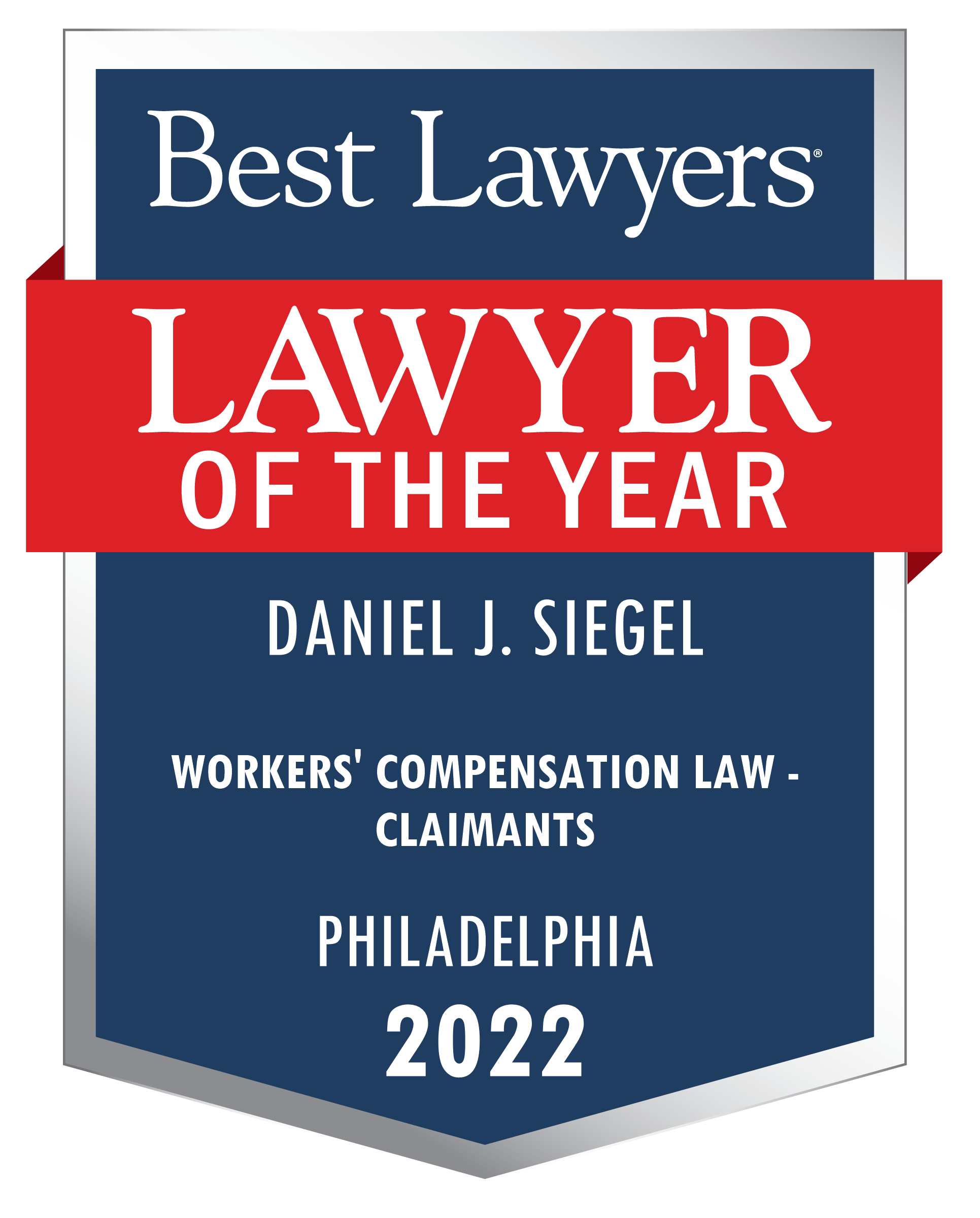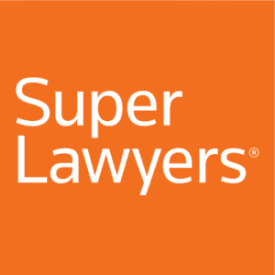Question & Answers About the Pennsylvania Disciplinary Process – Part III
Reprinted from the Fall 2023 Edition of The Philadelphia Lawyer, (c) 2023, Philadelphia Bar Association, Reprinted With Permission
By Daniel J. Siegel
In this column, the final of a series of three, I will continue to answer questions about the disciplinary process for attorneys licensed in Pennsylvania. Feel free to contact me if there are questions you want answered in future columns.
How does Disciplinary Counsel proceed after receiving a complaint about a lawyer?
Pennsylvania Rule of Disciplinary Enforcement 208 outlines the processes for all disciplinary proceedings. Before formal proceedings are filed, Disciplinary Counsel must review a Complaint and determine if the allegations warrant the pursuit of formal proceedings. If Disciplinary Counsel recommends proceeding with formal charges, the matter will proceed before a Hearing Committee or special master.
If Disciplinary Counsel determines that a Complaint is (1) frivolous, (2) outside the jurisdiction of the Board, or (3) that further proceedings are not warranted based on Board policy or prosecutorial discretion, it may recommend: (a) dismissal of the complaint, (b) a conditional or unconditional informal admonition of the attorney concerned, (c) a conditional or unconditional private reprimand by the Board of the attorney concerned, or (d) a conditional or unconditional public reprimand by the Board of the attorney concerned. Except when Disciplinary Counsel dismisses the complaint as frivolous or outside the jurisdiction of the Board, or based on Board policy or prosecutorial discretion, a member of a Hearing Committee in the appropriate disciplinary district must review and either approve or modify the recommendation.
Disciplinary Counsel may appeal the disposition recommended by a Hearing Committee member to a reviewing panel comprised of three members of the Board, which shall order that the matter be concluded by dismissal, conditional or unconditional informal admonition, conditional or unconditional private reprimand, or conditional or unconditional public reprimand, or direct that a formal proceeding be instituted before a Hearing Committee or special master in the appropriate disciplinary district. A recommendation by a reviewing Hearing Committee member for a conditional or unconditional private or public reprimand shall be reviewed by a panel of three Board members who may approve or modify.
What can an attorney do if a Complaint has been concluded without formal proceedings?
When Disciplinary Counsel does not pursue formal proceedings, the respondent-attorney is not entitled to appeal an informal admonition, a private reprimand, a public reprimand, or any conditions attached to them. The attorney may demand as of right, however, that a formal proceeding be instituted against them in the appropriate disciplinary district. In those cases, the respondent-attorney need not appear for the administration of the informal admonition, private reprimand, or public reprimand, and the matter will be handled in the same manner as any other formal proceeding.
How do formal proceedings occur?
Disciplinary Counsel initiates formal disciplinary proceedings by filing a petition with the Disciplinary Board specifying the charges of misconduct. The Petition must be personally served upon the respondent-attorney, along with a Notice to Plead. The respondent-attorney must file an Answer within 20 days after service. Similar to civil litigation, any factual allegation that is not timely answered shall be deemed admitted. At times, the Disciplinary Board will grant an extension of time to answer the Petition.
If the Answer raises issues or the respondent-attorney requests the opportunity to be heard in mitigation, the Board will assign the matter to a Hearing Committee or a special master. As outlined below, additional proceedings will occur. However, when facts are admitted, no additional evidence may be permitted.
What are the procedures once formal proceedings are filed?
Although disciplinary proceedings are governed by the Pennsylvania Rules of Disciplinary Enforcement, the Disciplinary Board Rules and Procedures, and by case law, matters progress in ways similar to, but not identical to, traditional civil litigation.
Who is on the Hearing Committee that hears the case?
The Disciplinary Board Prothonotary appoints the three members of the Hearing Committee to which the matter is assigned. The Committee cannot include the Hearing Committee member who passed upon Disciplinary Counsel’s recommended disposition. The Board Prothonotary also designates which member of the Hearing Committee will conduct the prehearing conference.
What is a prehearing conference?
The prehearing conference is an opportunity for the parties and respondent’s counsel to address any issues, including evidence, timing of the matter, stipulations, witnesses, and any other matters. There is no formal discovery in disciplinary proceedings, so it is essential for the parties to address all issues and be able to prepare for the hearing. The prehearing conference must be scheduled at least 30 days before the scheduled date of the hearing.
When is the disciplinary hearing?
The Board Prothonotary schedules the date, time, and place of the hearing when the members of the Hearing Committee are appointed. The date for the hearing must be no later than 90 days after the file is transmitted to a Hearing Committee unless the Board Chair has granted an extension at the request of any party.
What happens at a disciplinary hearing?
A disciplinary hearing is similar to an Arbitration or trial. Both sides present evidence at the hearing, including witnesses, stipulations, and exhibits. Board Prothonotary schedules the date, time, and place of the hearing when the members of the Hearing Committee are appointed. The date for the hearing must be no later than 90 days after the file is transmitted to a Hearing Committee unless the Board Chair has granted an extension at the request of any party.
Who has the burden of proof, and how is evidence presented?
The Office of Disciplinary Counsel has the burden of proof in petitions for discipline. Disciplinary Counsel must present its evidence and may also present rebuttal evidence. The respondent-attorney may present evidence and witnesses in defense of the petition. In a petition for reinstatement proceedings, the petitioner has the burden of proof and must initiate the presentation of evidence. The petitioner may also present rebuttal evidence.
In general, evidence is presented similarly to civil litigation, including presentation of evidence, cross-examination, objection, motions, and argument. Parties may also present expert witness testimony, as necessary. The Hearing Committee can make rulings on the admissibility of fact and expert testimony, and limit the number of witnesses. When appropriate, the Hearing Committee may permit additional evidence to be introduced after the conclusion of the formal hearing.
Are there transcripts of the proceedings?
Yes, a court reporter is present and transcribes the proceedings.
Are the proceedings open to the public?
Yes. Under Pennsylvania Rules of Disciplinary Enforcement 402, all proceedings under these rules shall be open to the public after (1) the filing of an Answer to a petition for discipline, (2) the time to file an Answer to a petition for discipline has expired without an Answer being filed, (3) the filing and service of a petition for reinstatement, or (4) the Disciplinary Board has entered an Order determining a public reprimand.
Until the proceedings are open under the Rules, all proceedings involving allegations of misconduct by or disability of an attorney shall be kept confidential unless (1) the respondent-attorney requests that the matter be public, or waives confidentiality for a particular purpose specified in writing, (2) the investigation is predicated upon a conviction of the respondent-attorney for a crime or reciprocal discipline, (3) the Supreme Court enters an order of temporary suspension from the practice of law under Enforcement Rule 208(f) (relating to emergency temporary suspension orders) or Enforcement Rule 214(d) (relating to temporary suspension based on a criminal proceeding), (4) in matters involving alleged disability, the Supreme Court enters an Order transferring the respondent-attorney to inactive status pursuant to Enforcement Rule 301 (relating to proceedings where an attorney is declared to be incompetent or is alleged to be incapacitated), or (5) there is a need to notify another person or organization, including the Lawyers’ Fund for Client Security, in order to protect the public, the administration of justice, or the legal profession.
When the hearings become public, the Disciplinary Board website lists the general nature of the petition pending. The website and the Disciplinary Board newsletters list the dates of public hearings, which have been broadcast live since the pandemic.
When all evidence is presented, what happens next?
Following the close of the record, parties may file briefs with the Hearing Committee. The moving party’s filing is due 20 days after the filing of the hearing transcript, and the respondent brief is due 20 days later. The briefs typically include Proposed Findings of Fact and Conclusions of Law. The Rules limit briefs to 6,000 words.
Does the Hearing Committee issue a Report?
Yes. The Hearing Committee, under Rule of Disciplinary Enforcement 208(c), must file a Report no later than 60 days after the conclusion of the hearing and submission of briefs. The Report contains a brief summary of the case, the ultimate issue or issues involved, and the conclusions and recommendations as to the disposition of the matter. Following this initial summary, the Report contains detailed (1) Findings of Fact, (2) Discussion, (3) Conclusions of Law, and (4) Recommended Disposition of the Petition.
What happens after the Hearing Committee issues its Report?
The Board, after it receives the Report and Recommendation of the Hearing Committee, may schedule oral argument. If neither party objects to the Findings and Recommendations, oral argument and submission of briefs may be waived by stipulation, subject to approval by the Board. A participant is deemed to have waived all objections to the findings and recommendations of the Hearing Committee and to have stipulated to the waiver of oral argument and submission of briefs unless the participant files Exceptions, known as a “Brief on Exceptions.” Unless expressly requested, oral argument on Exceptions is waived. The opposing party may file a brief opposing the Exceptions.
Under Rule of Disciplinary Enforcement 208(d)(2), the Disciplinary Board shall either affirm or change in writing the recommendation of the Hearing Committee within 60 days after the adjudication of the matter at a meeting of the Board.
Next, under Rule of Disciplinary Enforcement 208(d)(2)(ii), the Board may determine that the proceeding should be concluded by informal admonition, private reprimand, or public reprimand. In those situations, the Board will arrange to have the respondent-attorney appear in person before Disciplinary Counsel for the purpose of receiving an informal admonition or before a designated panel of three members selected by the Board Chair to receive a private reprimand or public reprimand. If the matter concludes with private discipline, Disciplinary Counsel will notify the complainant in writing of the disposition.
An attorney unwilling to have the matter concluded by informal admonition, private reprimand, or public reprimand may demand Supreme Court consideration of the matter by filing a Notice of Appeal with the Supreme Court within 30 days after notice of the determination of the Board.
If, however, the Board determines that the matter should be concluded by probation, censure, suspension, or disbarment, the Board will file the entire record with the Supreme Court. Thereafter, the Supreme Court will review the record, and where appropriate, it will consider oral argument and enter an Order. Review by the Supreme Court is de novo. The Court may impose a sanction greater or less than that recommended by the Board.
The Rules also provide that if the Board recommends a sanction less than disbarment, and the Court believes that a Rule to Show Cause should be served upon the respondent-attorney, the Court will issue a Rule. In that case, and after responses are filed, the respondent-attorney has the “absolute right” upon request for oral argument. In other circumstances, the respondent-attorney will not be afforded the right of oral argument.
What happens once the matter reaches the Supreme Court and any proceedings are concluded?
When all the proceedings available to the parties are concluded and any other Supreme Court filings are complete, the Court will issue an Order imposing the discipline it deems appropriate. In virtually every case, the Order will become effective 30 days from the date of its issuance, permitting the respondent-attorney to wind down their practice.
What must the lawyer do once the Supreme Court suspends or disbars a lawyer?
When all the proceedings available to the parties are concluded and any other Supreme Court filings are complete, the Court will issue an Order imposing the discipline it deems appropriate. In virtually every case, the Order will become effective 30 days from the date of its issuance, permitting the respondent-attorney to wind down their practice.
Of note, a disbarred or suspended attorney is considered a formerly-admitted attorney and must notify various parties, opposing counsel, courts, administrative agencies, and others of the disbarment or suspension and the inability to act as an attorney after the effective date of the disbarment or suspension. The Disciplinary Board provides the respondent-attorney with standard guidance that explains their obligations as formerly admitted attorneys, including documents that must be filed to confirm that the attorney has wound down their practice. These documents must be filed before the time for seeking reinstatement begins to run.
This concludes this three-part explanation of the Pennsylvania attorney disciplinary process. If you have questions or comments, please contact me.
Daniel J. Siegel, a member of the Board of The Philadelphia Lawyer, is the principal of the Law Offices of Daniel J. Siegel, LLC, and chair of the Pennsylvania Bar Association Committee on Legal Ethics and Professional Responsibility. He provides ethical, techno-ethical, and disciplinary guidance and representation, as well as appellate, writing, and trial preparation services to other attorneys. He can be reached at dan@danieljsiegel.com.







